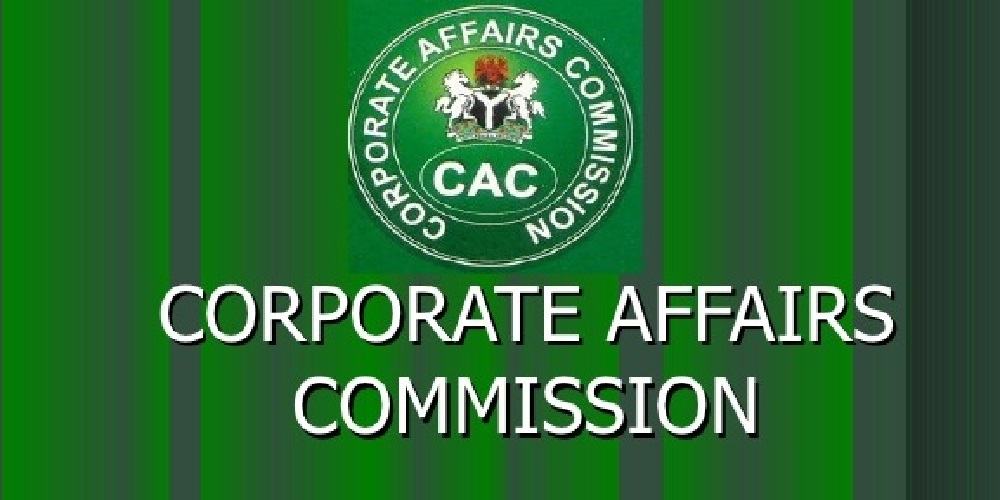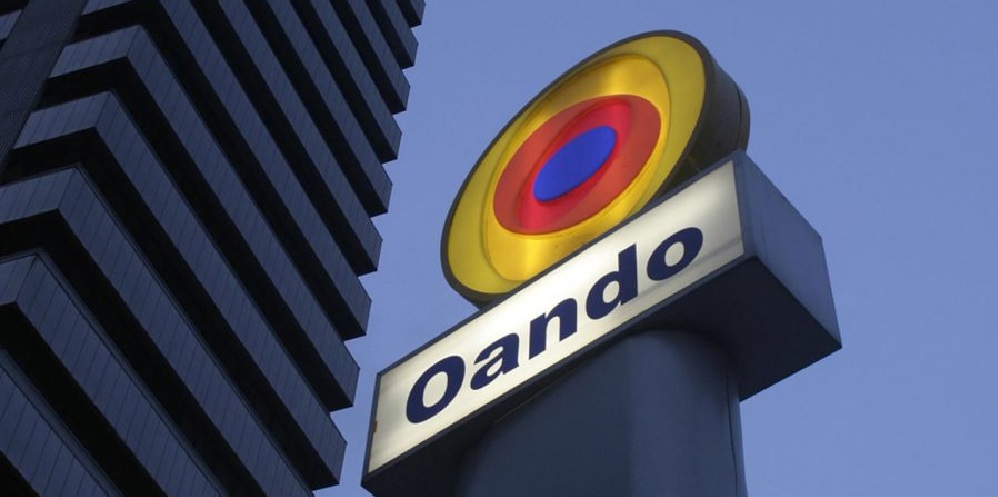Economy
CBN clears valid FX backlog as external reserves rise to $34.11bn

The Central Bank of Nigeria (CBN) says it has cleared all valid foreign exchange backlogs.
This was disclosed by the Bank’s Acting Director, Corporate Communications, Mrs. Hakama Sidi Ali, in Abuja, on Wednesday night.
She said it was in, “fulfilling a key pledge of the CBN Governor, Mr. Olayemi Cardoso, to process an inherited backlog of US$7 billion in claims.”
Mrs. Sidi Ali noted that the CBN recently concluded the payment of $1.5 billion to settle obligations to bank customers, effectively settling the residual balance of the FX backlog.
She also disclosed that independent auditors from Deloitte Consulting meticulously assessed these transactions, ensuring that only legitimate claims were honoured.
“Any invalid transactions were promptly referred to the relevant authorities for further scrutiny,” The CBN spokesperson added.
At a recent meeting, Governor Cardoso declared: “We made clearing the FX backlog a priority to restore credibility and confidence in the Nigerian economy.
“It was important that we go through an independent and credible process that would determine the authenticity of those obligations, and, at this point, I can tell you that we have now cleared all genuine, verifiable transactions. This encumbrance to market confidence in the country’s ability to meet its obligations is now totally behind us.”
Clearance of the foreign exchange transactions backlog is part of the overall strategy detailed in last month’s Monetary Policy Committee meeting to stabilise the exchange rate and thereby curb imported inflation, spurring confidence in the banking system and the economy.
Cardoso used the MPC meeting and a subsequent conference call with foreign portfolio investors to set expectations for sustained increases in Nigeria’s foreign currency reserves and improved liquidity in the foreign exchange market
The CBN followed this by reporting a significant increase in external reserves, rising by $993 million to $34.11 billion as of March 7, 2024, the highest level in eight months.
The month-on-month increase was driven by a marked advance in remittance payments by Nigerians overseas, as well as higher purchases of local assets, including government debt securities, by foreign investors.
Economy
CAC issues guidelines for banks recapitalisation, merger

The Corporate Affairs Commission has issued fresh guidelines to assist Deposit Money Banks in the ongoing recapitalisation.
The commission, in a statement signed by its management and posted on its Facebook account on Friday, said the new directive is pursuant to its powers under Section 8 (1) (e) of the Companies and Allied Matters Act No. 3 of 2020, stressing immediate adherence to the policy.
It said the new guidelines were issued to guide proper filing for new incorporations, increase in share capitals, mergers and upgrade or downgrade of licence authorisation.
For new incorporations, the CAC stated that intending applicants must submit necessary requirements including, “An approved name reservation or availability, approval-in-principle from sector regulator, duly completed on-line incorporation form and payment of stamp duty and filing fees for the category of license authorisation.”
It added that a certificate of incorporation shall be issued within 24 hours for applications that satisfy all requirements for incorporation of companies prescribed in the, “Commission’s operations checklists available at www.cac.gov.ng/resources.”
Also, banking institutions seeking to increase their share capital through private placements, rights issues and/or offers for subscription must submit a duly signed company resolution, return of allotment and other statutory declaration by directors verifying that the issued share capital is fully paid- up
Other requirements include, “Notice of the fact that regulatory approval is required, an affidavit deposed to by a director of the company to the effect that regulatory approval is required for the increase, an amended memorandum of association reflecting the new share capital.
“Payment of stamp duties and filing fees, Issuance of a letter acknowledging notice of increase and requirement of regulatory approval, filing of regulatory approval and the issuance of a certificate of increase.”
Under this category, the commission warned that the notice of the fact that regulatory approval is required must be filed in accordance with the provisions of Section 127 (3), (4) & (5) of CAMA.
“Annual returns and information on persons with significant control must be filed up-to-date and certificate of increase shall be issued within 24 hours of filing of regulatory approval,” it said.
Similarly, small and medium banking institutions seeking to merge must submit duly signed special resolution for merger by each of the merging companies.
Other requirements are “the scheme of merger duly approved by the Securities and Exchange Commission.
“A certified true copy of court order authorising Extraordinary General Meeting of each of the merging companies. Evidence of publication of court ordered meeting in two newspapers and the Federal Gazette and a CTC of Court order sanctioning the Scheme of Merger.
“All enquiries and complaints on these guidelines and applications submitted in pursuance of the recapitalisation exercise should call +234 816 920 9551,” the statement added.
Recall that the Central Bank of Nigeria in March 2024 directed all banks to increase their capital base for improved productivity.
The apex bank had directed commercial banks with international authorisation to increase their capital base to N500bn and national banks to N200bn.
It also said commercial banks with national licences must meet a N200bn threshold, while those with regional authorisation are expected to achieve a N50bn capital floor.
This process has commenced fully with banks issuing public offers and rights issues to meet the two year target.
Economy
Oando denies owning blending plant in Malta

Oando PLC has denied allegations on social and digital media that it owns a blending plant in Malta.
The energy company also denied importing dirty fuel into Nigeria through a Maltese company, Raz Hansir Oil Terminal Limited.
A statement by the company secretary, Ayotola Jagun, said the allegations levelled against Oando of being a shareholder, and its principals of being board members of Raz Hansir Oil Terminal Limited, a company that operates an oil storage and blending facility responsible for importing adulterated petroleum products into Nigeria, were unfounded.
“We wish to refute such claims and attest that neither Oando PLC nor its Executives have ever held shares, investments, or interests in the fictitious Maltese company.
“As part of a comprehensive investigation into the basis of the false claims, we conducted a search of the Malta Business Registry, the official repository for all registered entities past and current within the country. Our search yielded no results for a company bearing that name. Subsequent due diligence efforts similarly failed to uncover any record of the company’s existence.
“We therefore believe that the false claims are of the malicious intent of misleading the public and our stakeholders,” Jagun stated.
The company reiterated that as a publicly listed company, any corporate actions, such as acquisitions, are declared publicly in accordance with applicable corporate governance laws and rules.
“Furthermore, it is imperative that information released about a publicly quoted company such as Oando, is thoroughly researched and deemed accurate before it is published in the public domain.
“The company’s securities are traded daily across two exchanges (NGX and JSE). To prevent misinformation and confusion among investors, as well as our other stakeholders, we implore all members of the press to take adequate steps to ensure the veracity of reports by fielding all enquiries with Oando PLC’s Corporate Communications department,” Jagun submitted.
Malta and its oil became a topic of discussion lately following allegations by the President of the Dangote Group, Alhaji Aliko Dangote that some officials of the Nigerian National Petroleum Company Limited own blending plants in Malta.
Amid the crisis surrounding his $20bn refinery, Dangote had said: Some of the terminals, some of the NNPC people and some traders have opened blending plants somewhere off Malta. We all know these areas. We know what they are doing,” Dangote said.
Data from Trade Map showed that Nigeria imported fuel worth $2bn in 2023 alone.
Earlier, the Group Chief Executive Officer of the NNPC, Mele Kyari, said he does not own a blending plant outside Nigeria.
Kyari stated that he had been inundated with calls from family members and friends, asking if he truly owned a blending plant in Malta.
Economy
Guinness loss widens to N54.76bn as finance cost spikes by over 100%

Guinness Nigeria Plc has released its audited financial statements for the year ended June 30, 2024.
Guinness Nigeria Plc loss for the year came in higher at N54.766billion, from loss of N18.168billion in 2023, representing 201percent increase.
The company’s net finance costs rose by 117.79 percent to N99.087billion in 2024, from N45.496billion in 2023. Its loss before income tax (LBT) rose to N73.679billion from N22.138billion loss before tax in 2023 financial year.
The brewer’s full year revenue of N299.489billion as against N229.440billion represents 31percent increase. Its profit from operating activities printed at N25.407billion in 2024, from N23.357billion in 2023, up 9percent.
The brewer’s full year revenue of N299.489billion as against N229.440billion represents 31percent increase. Its profit from operating activities printed at N25.407billion in 2024, from N23.357billion in 2023, up 9percent.
-

 News24 hours ago
News24 hours agoNationwide protest: ‘Airport Is Filled Up, Govs, Senators, Reps, Ministers Traveling Abroad’ — Fayose
-

 News17 hours ago
News17 hours agoLP blows hot gives Akpabio 72hrs to declare Senator Onyewuchi’s seat cacant for dumping party for APC
-

 Politics16 hours ago
Politics16 hours agoBreaking! LP crisis takes fresh twist as ‘new’ chairman emergesl
-

 News16 hours ago
News16 hours agoJust in: DSS moves against organisers of protest, freezes bank accounts as group set to file legal action against UBA
-

 News17 hours ago
News17 hours agoSEE Dollar to naira exchange rate today at black market
-

 Opinion4 hours ago
Opinion4 hours agoFuel Challenge In Nigeria: Modular refineries to the rescue?
-

 News4 hours ago
News4 hours agoAraraume mourns Iwuanyanwu, says Nigeria has lost a genuine patriot
-

 News12 hours ago
News12 hours agoFinally, IGP approves hunger protests across Nigeria








